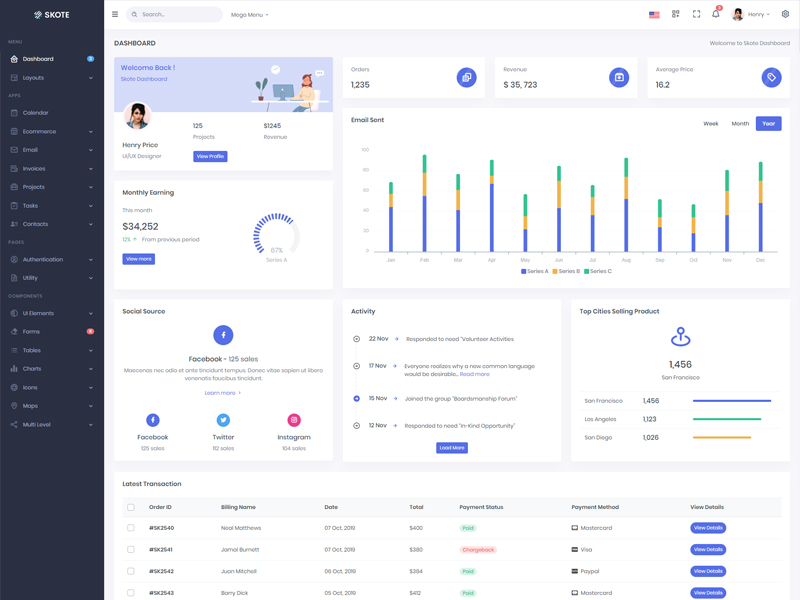Most Commonly Used Buttons
The most common buttons you'd be using would be your save .btn-save, invoke .btn-invoke, cancel.btn-cancel, and potentially a more carefully used 'delete' styled button .btn-delete. This delete one would be for deleting your account or removing a user, etc. Things that are hard or impossible to 'undo'.
Basic Operation Buttons
For non-save style buttons, performing all sorts of other functionality, we focus on using these: .btn-main class (which is the same style as .btn-save and uses the $CoreTwo color in the _variables.scss file), .btn-invoke class (uses the $CoreOne color in the _variables.scss file), and the others use the .btn-basic class (same style as .btn-cancel). We of course also have the red style buttons, using the .btn-delete class
Example of Buttons Used
Here's a common example of the main button with some follow up buttons
Animation on Button Click
To invoke an animation while awaiting the response from the webservice, etc., you can use javascript to insert a special font-awesome icon in front of the text.
Example of Buttons with Icons (Leading)
Here's buttons with leading icons
Example of Buttons with Icons (Trailing)
Here's buttons with trailing icons
Subtle Version of Buttons with Icons (Leading)
Here's buttons with leading icons
Subtle Version of Buttons with Icons (Trailing)
Here's buttons with trailing icons
Buttons Sizes
Add .btn-lg or .btn-sm for additional sizes. Use the large ones very rarely or never. Use the Medium ones in some cases. Use Small ones most of the time, since these are internal, business apps.
Again, use the small ones below most of the time, since these are internal, business apps.
Buttons width
Width is typically defined based on the text within the button, But,... you can add .w-xs, .w-sm, .w-md and .w-lg class for additional buttons width.
Button tags
The .btn
classes are designed to be used with the <button> element.
However, you can also use these classes on <a> or <input> elements (though
some browsers may apply a slightly different rendering).
Toggle states
Simple active, vs disabled state
Block Buttons
Create block level buttons—those that
span the full width of a parent—by adding .btn-block.
Checkbox & Radio Buttons
Create button-like checkboxes and radio buttons by using .btn styles rather than .form-check-label on the <label> elements.
Button group
Wrap a series of buttons with .btn in .btn-group.
Button Toolbar
Combine sets of button groups into button toolbars for more complex components. Use utility classes as needed to space out groups, buttons, and more.
Sizing
Instead of applying button sizing
classes to every button in a group, just add .btn-group-* to each .btn-group, including each one
when nesting multiple groups.
Vertical variation
Make a set of buttons appear vertically stacked rather than horizontally. Split button dropdowns are not supported here.

